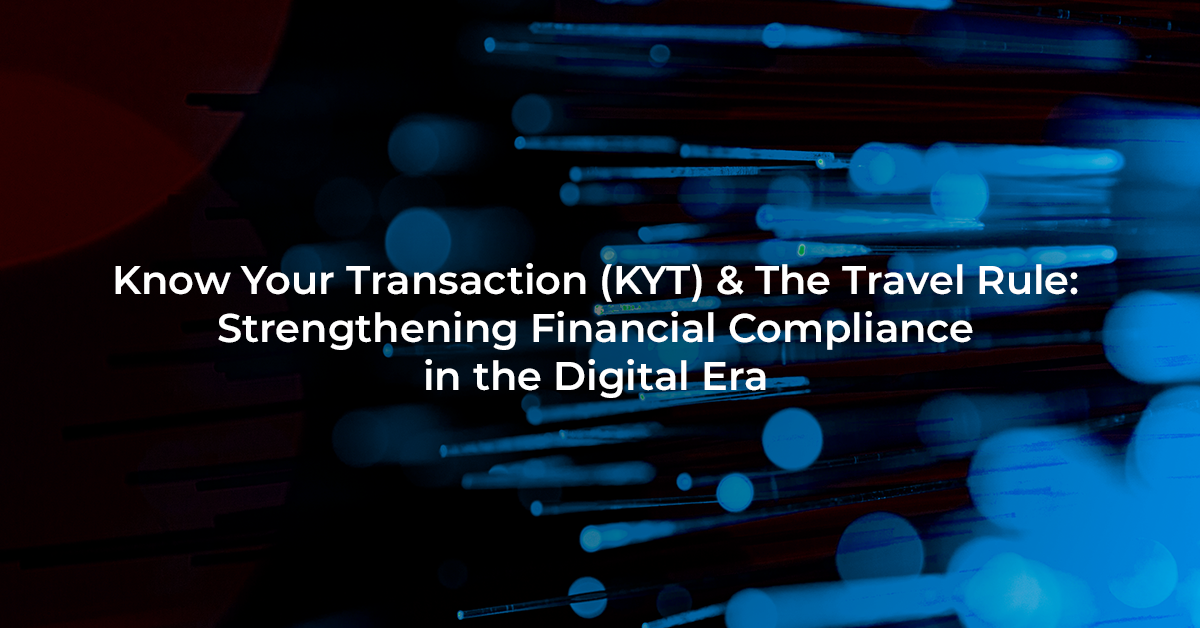
Know Your Transaction (KYT) & The Travel Rule: Strengthening Financial Compliance in the Digital Era
Introduction
As financial transactions become increasingly digitized, Know Your Transaction (KYT) has emerged as a critical tool for preventing money laundering (AML), fraud, and terrorist financing (CTF). Unlike Know Your Customer (KYC), which focuses on verifying customer identities, KYT monitors transactional behaviors in real-time to detect suspicious activity.
With the rise of blockchain technology and cryptocurrency transactions, regulatory bodies worldwide have introduced the Travel Rule, a key compliance requirement for Virtual Asset Service Providers (VASPs). This rule mandates financial institutions and crypto exchanges to share transaction sender and recipient information, ensuring transparency and reducing the risk of illicit activities.
This article delves into the role of KYT and the Travel Rule, their impact on financial institutions and crypto service providers, and best practices for compliance.
What is Know Your Transaction (KYT)?
KYT is a real-time transaction monitoring system that assesses financial transactions based on:
- Transaction amount and frequency
- Counterparties involved
- Geographic risk indicators
- Historical transaction behaviors
Why KYT Matters
- Prevents financial crimes like money laundering, fraud, and terrorist financing.
- Ensures AML/CTF compliance with global regulatory standards.
- Reduces reputational risk for financial institutions.
- Enhances transparency and accountability in financial transactions.
KYT in Blockchain & Cryptocurrencies
Cryptocurrency transactions pose unique risks due to pseudo-anonymity and decentralization. Traditional banking transactions can be easily traced through intermediaries, but crypto wallets do not require personal identification, making illicit fund movements difficult to track.
How KYT Enhances Blockchain Security:
- Identifies high-risk wallet addresses
- Tracks transaction flows using blockchain analytics
- Assigns risk scores to transactions
- Flags suspicious transactions for investigation
What is the Travel Rule?
The Travel Rule is a global financial regulation requiring Virtual Asset Service Providers (VASPs) to disclose information about the sender and receiver of digital asset transactions. It was first introduced by the Financial Action Task Force (FATF) to align cryptocurrency compliance with traditional financial system requirements.
Key Requirements of the Travel Rule:
- VASP-to-VASP Information Sharing – When a customer sends digital assets, the originating exchange must share transaction details with the recipient exchange.
- Mandatory Data Disclosure – Sender and receiver details, including name, wallet address, and national ID, must be recorded.
- Threshold-Based Enforcement – Many regulators require Travel Rule compliance for transactions exceeding $1,000 or equivalent.
- Global Implementation – Jurisdictions worldwide are enforcing the Travel Rule to enhance crypto transparency.
Why the Travel Rule is Crucial for Crypto Compliance
- Prevents money laundering & terrorism financing
- Increases regulatory oversight in crypto transactions
- Bridges the compliance gap between traditional finance and digital assets
- Reduces anonymity in illicit crypto transfers
Bülent Bulut, Member of Fineksus Advisory Board
